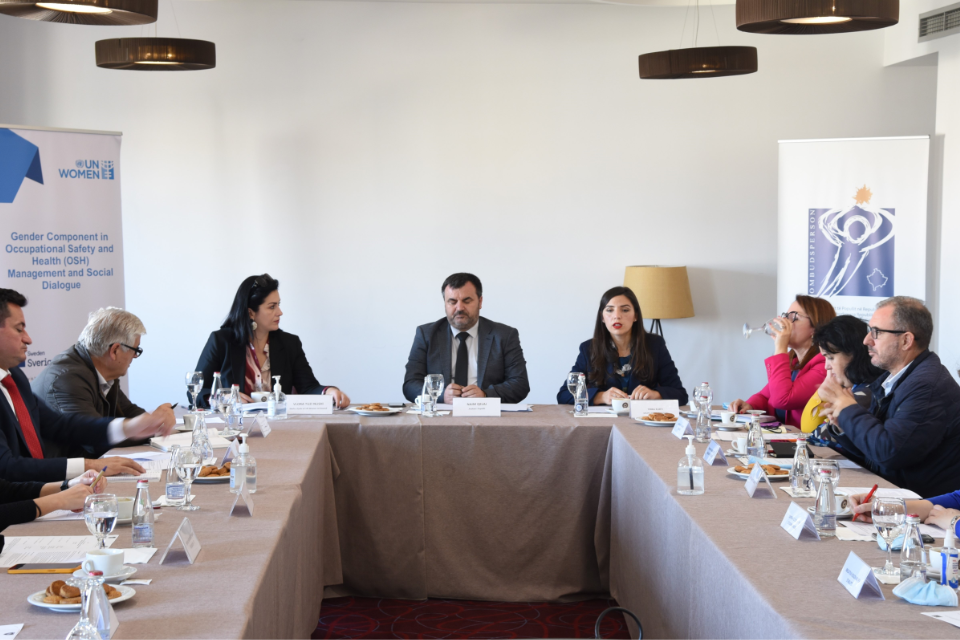Kosovo to prioritize gender-sensitive standards for occupational safety, health and decent work
Date:
UN Women, in cooperation with the Ombudsperson Institution in Kosovo[1] , launched the Informal Advocacy Task Force on Gender-Sensitive Standards for Occupational Safety, Health and Decent Work on 25 October 2021.

It is important for relevant government bodies, the private sector, and civil society to raise awareness about the rights and needs of both women and men when it comes to occupational health and safety (OHS). This task force aims to help foster coordination and cooperation between stakeholders, the Ombudsperson Institution, the Women's Caucus, UN entities, trade unions, private companies, gender equality activists and civil society organizations to promote the gender-sensitive standards for Occupational Safety, Health and Decent Work.
UN Women has played a crucial role in forming this task force and supporting the head of the team on administrative and organizational procedures.
“The task force will serve as a transitional mechanism, until existing mechanisms such as Labour Inspectorate and Workers Syndicates are fully strengthened and capable to fulfil their obligations arising from the law and monitor its implementation in the sector of labour, safety and health at work,” stated the Ombudsperson Naim Qelaj by declaring the Ombudsperson Institution’s commitment to continue chairing the informal task force.
An informal group to address issues that concern occupational safety, health and decent work is of particular importance, given the timing of legal changes, such as the amendment of the Labour Law and Law on Safety and Health at Work. For this reason, the task force will serve as a platform for the regular exchange of information and experiences in the implementation of gender-sensitive standards. It also calls on central and local level institutions to commit towards the implementation of a gender-sensitive legal framework for safety and health at work.
The co-chair of the task force, Head of Women Caucus, Tinka Kurti, emphasized the major issues that women face in Kosovo. Highlighting the low participation rate of women in the labour market, unshared family responsibilities, informal employment, undeclared work, domestic and unpaid shared work, Kurti stated that assessing gender mainstreaming of OSH is mandatory so that the needs of women are met. She also underlined that it is mandatory to review existing laws so that women’s needs are met.
“By working closely with the government and civil society organizations at the local levels, the task force will focus on occupational safety, health and decent work, with the ultimate goal of ensuring security and safety and empowering women in the workplace, marketplace and community,” said Vlora Tuzi Nushi, the Head of UN Women in Kosovo.
The long-term goal of the “Promoting Decent Work through Strengthening of OSH Management and Social Dialogue in Kosovo,” project is set against Sustainable Development Goal 8 on Decent Work and Economic Growth and its particular target to “protect labour rights and promote safe and secure working environments for all workers.” For this reason, the gender component implemented by UN Women through this project’s activities will focus on gender responsive promotion of decent work and OSH standards with the ultimate aim of fostering women’s economic empowerment.
The task force as a mechanism is established under the project “Gender component in Occupational Safety and Health (OSH) management and Social Dialogue,” which is funded by the Swedish Development Agency through the Embassy of Sweden in Pristina.
[1] All references to Kosovo should be understood to be in the context of United Nations Security Council resolution 1244 (1999).